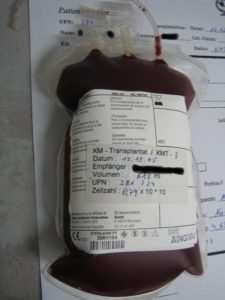
Recently Diagnosed or Relapsed? Stop Looking For a Miracle Cure, and Use Evidence-Based Therapies To Enhance Your Treatment and Prolong Your Remission
Multiple Myeloma an incurable disease, but I have spent the last 25 years in remission using a blend of conventional oncology and evidence-based nutrition, supplementation, and lifestyle therapies from peer-reviewed studies that your oncologist probably hasn't told you about.
Click the orange button to the right to learn more about what you can start doing today.
- You are here:
- Home »
- Blog »
- Multiple Myeloma »
- Multiple Myeloma Chemotherapy- Can Antioxidant Supplements Interfere w/ Chemo?
Multiple Myeloma Chemotherapy- Can Antioxidant Supplements Interfere w/ Chemo?

“Our study suggests that EPA and DHA induce selective cytotoxic effects in MM and increase sensitivity to bortezomib… but curcumin inhibited MM cell growth”
Hi David- My 60 year old sister was diagnosed with Multiple Myeloma about 3 years ago. She has had constant MM chemotherapy throughout and an autologous stem cell transplant (ASCT) about 1 year ago. She has been taking many supplements/vitamins all along. Doctors say she has refractory MM and in most cases the life span (with treatments) is only 5 years.
Could supplements/vitamins be interacting with the chemo treatments preventing her from going into remission? Laura
Hi Laura,
- However, I can say that certain supplements have been shown in studies to enhance the efficacy of specific MM chemotherapy regimens. For example, curcumin has been shown to enhance the efficacy of revlimid (lenalidomide). See the study linked below.
- In addition, omega-3 fatty acids have been shown to kill MM as well as enhance the efficacy of velcade (bortezomib). Please see the study below.
- On the other hand, green tea (EGCG) has been shown to inhibit the efficacy of velcade (bortezomib).
- MM Survivor
- MM Coach
- Director PeopleBeatingCancer
Recommended Reading:
- Cancer Coaching- Conventional, Complementary, Integrative and Alternative Therapies
- Multiple Myeloma Chemotherapy Treatments Tips & Tricks
- Multiple Myeloma Diet- Flaxseeds/Budwig Diet
Multiple myeloma: Treatment of relapsed or refractory disease
“The majority of patients with multiple myeloma (MM) will have an initial response to treatment with modern combination regimens. However, conventional therapy is not curative and most of these patients will ultimately progress. In addition, some patients will not respond to initial treatment (ie, refractory disease)…”
Curcumin in combination with bortezomib synergistically induced apoptosis in human multiple myeloma U266 cells
Omega-3 fatty acids, EPA and DHA induce apoptosis and enhance drug sensitivity in multiple myeloma cells but not in normal peripheral mononuclear cells.
Green tea polyphenols block the anticancer effects of bortezomib and other boronic acid-based proteasome inhibitors.
“The anticancer potency of green tea and its individual components is being intensely investigated, and some cancer patients already self-medicate with this “miracle herb” in hopes of augmenting the anticancer outcome of their chemotherapy…
Unexpectedly, we discovered that various green tea constituents, in particular (-)-epigallocatechin gallate (EGCG) and other polyphenols with 1,2-benzenediol moieties, effectively prevented tumor cell death induced by BZM in vitro and in vivo…
Taken together, our results indicate that green tea polyphenols may have the potential to negate the therapeutic efficacy of BZM and suggest that consumption of green tea products may be contraindicated during cancer therapy with BZM.”


